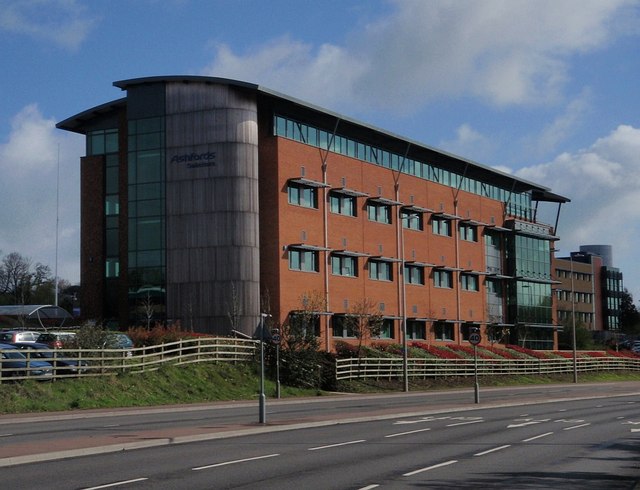richsvk5516683
About richsvk5516683
The history of law courts in the UK that dates back to the early Middle Ages.
Apart from ensuring accessibility, law courts in the UK are also designed to meet the needs of vulnerable individuals. This includes facilities to support victims of crime, witnesses, and those involved in family disputes. For example, many family courts have separate waiting areas for children or victims of domestic abuse to ensure they feel safe and comfortable during proceedings. Some courts also have facilities such as video link systems, where vulnerable witnesses can give their testimony from a secure location, reducing the stress of appearing in court.
 In contrast, For less severe criminal cases, Magistrates’ Courts focus on lower-level criminal matters and some civil cases. These courts are typically smaller and more informal than Crown Courts, and they are designed to handle cases more quickly. Magistrates’ courts provide basic facilities, such as desks for the magistrates and defendant, seating for the public, and spaces for legal representatives. Unlike Crown Courts, there is no jury in Magistrates’ Courts, and the cases are decided by a panel of magistrates or a district judge.
In contrast, For less severe criminal cases, Magistrates’ Courts focus on lower-level criminal matters and some civil cases. These courts are typically smaller and more informal than Crown Courts, and they are designed to handle cases more quickly. Magistrates’ courts provide basic facilities, such as desks for the magistrates and defendant, seating for the public, and spaces for legal representatives. Unlike Crown Courts, there is no jury in Magistrates’ Courts, and the cases are decided by a panel of magistrates or a district judge.
One of the key duties of courts is to ensure that there is access to justice for all, particularly for vulnerable or disadvantaged individuals. This duty is reflected in the provision of legal aid, which allows those who cannot afford legal representation to still access the courts and receive professional legal support. Courts also work to ensure that individuals who are facing discrimination or disadvantage can still access a fair trial and that their rights are protected throughout the legal process.
One of the defining features of the Scottish legal system is the use of three verdicts in criminal trials: ”guilty,” ”not guilty,” and ”not proven.” The ”not proven” verdict, unique to Scotland, results in acquittal but often carries a social stigma. Legal scholars continue to debate its usefulness and fairness.
Above the Sheriff Courts is the High Court of Justiciary, Scotland’s top-level criminal court. If you loved this write-up and you would certainly like to receive more information regarding Northern Ireland solicitor website kindly browse through our own page. It deals with the most serious crimes, such as murder, rape, and major drug offences. It also acts as the court of criminal appeal. Cases here are heard by a judge and, in most trials, a jury of fifteen people—a number that is unique to Scotland.
Youth justice in Wales has taken on a distinctive approach, with an emphasis on prevention, rehabilitation, and early intervention. The ”children first” principle underpins much of Welsh policy, and many diversionary schemes have been praised for reducing youth offending rates across Welsh communities.
While Scottish courts operate independently, they are not completely isolated from the UK-wide legal landscape. Certain matters—such as immigration, constitutional law, and human rights—can be appealed to the Supreme Court of the United Kingdom, which serves as the highest appellate court for civil matters from Scotland. However, the UK Supreme Court does not hear appeals in Scottish criminal cases, which end with the High Court of Justiciary.
Maintaining public trust is a key responsibility of law courts. Courts must operate in a transparent and accountable manner, ensuring that their decisions are well-reasoned and based on law. Transparency is vital to maintaining public trust, as it ensures that individuals feel confident that their cases will be heard fairly. Courts also play a role in educating the public about the legal process and promoting awareness of the justice system’s role in society. Without public confidence, the effectiveness of the entire legal system can be undermined.
While appeals from Welsh courts still go to the UK Supreme Court, that court has increasingly had to consider Welsh legislation in its rulings. This trend reflects the growing complexity of a shared legal system that is simultaneously diverging in practice.
In conclusion, law courts in the UK have a range of critical duties that are essential for the proper functioning of the legal system. From ensuring that justice is delivered fairly and impartially, to protecting individual rights, managing civil disputes, and upholding public confidence in the legal system, the duties of law courts are vast and varied. The work of courts is fundamental to the rule of law and the protection of democracy, ensuring that everyone, regardless of their background or circumstances, has access to justice. As the legal system continues to evolve, the role and responsibilities of law courts remain central to maintaining a fair and just society.
Access to justice is a key issue in Wales, particularly in rural and post-industrial areas. Court closures in recent years have raised concerns about people having to travel long distances for legal proceedings. The digitalisation of court processes—accelerated during the COVID-19 pandemic—has improved accessibility in some respects, but digital poverty and infrastructure limitations remain challenges.
Scotland also has a separate system for youth justice, which places emphasis on rehabilitation rather than punishment. The Children’s Hearings System focuses on the needs and welfare of children and young people who commit offences or are in need of care and protection. Panels are made up of trained lay members and aim to provide holistic support and supervision.
No listing found.